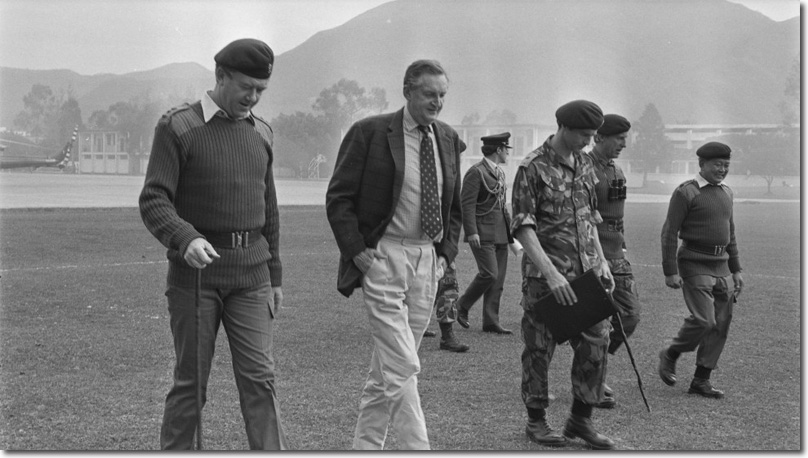|
|


|
| Sir Murray MacLehose was the first of a new breed of governors chosen from the Foreign Office rather than from colonial ranks, MacLehose was one of the more successful governors of Hong Kong. He directed its affairs firmly with vision and great distinction for ten and a half years. His earlier life experience provided good training for the challenge of the governorship. Independent action as a young man behind Japanese lines, working knowledge of Asian and Soviet communism, experience of both Commonwealth and colonial practices, and being private secretary to two foreign secretaries all gave him insight into the problems of modern government, Britain's place in the post-imperial world, and the complex relations between China and the West.
MacLehose succeeded in changing the image of Hong Kong from that of a conservative crown colony to that of a modern, prosperous, international commercial and financial centre living at peace with, and of value to, China in its post-Mao reforms. With the help of an American consultancy firm, he reformed the outdated colonial administration; he assaulted an endemic problem through the setting up of the independent commission against corruption, even though it meant confronting a subsequent police-force mutiny; he gave the administration a caring image through a ten-year housing scheme and massive progress in education; he made the government of Hong Kong more responsive to public opinion by reforming local councils and introducing district boards. He dealt successfully in his usual practical style with the problems of illegal Chinese immigration and Vietnamese boat people. The Hong Kong arts festival was conceived at his insistence. In these manifold directions, he created a flourishing, confident Hong Kong with an international reputation. MacLehose was a man of great integrity. Though often blunt, he was never afraid to admit error, and his innate kindness and the ability to connect with the common people of Hong Kong inspired huge public respect. He loved paddling about in a little boat (part of a love of the sea which went back to crewing in a yacht for the Seawanhaka cup in 1938). He also enjoyed walking in the hills of the New Territories. Villagers were often surprised to see the tall governor appear in remote areas, asking how things were in their district and clearing up rubbish on their beaches. The local expatriates, equally surprised by his vigour and resource, referred to him with affectionate respect as Jock the Sock or the Big Mac. He was later criticized at home and by pressure groups in Hong Kong for not trying to introduce a more democratic form of government. But, with pragmatic realism, he understood the danger of alarming Beijing into thinking that Hong Kong was being set on a path to independence, something no Chinese government could ever countenance. As a mark of respect and in tune with their new ‘opening-up’ policy of economic reform, the Chinese government invited him to visit Beijing in 1979, making his the first official visit by a governor since the communist take-over in 1949. The visit was memorable as the first step on the path to discussions on the future of Hong Kong after 1997. The visit enabled Deng Xiaoping to give the helpful reassurance through the governor that the Hong Kong people should 'put their hearts at ease', thus indicating the Chinese government's willingness to see capitalism continue in Hong Kong for a long time after 1997 while socialism was maintained in China. The photograph above was taken at Gallipoli Lines near Fanling out in the New Territories. It shows officers and soldiers of the 7th Gurkhas accompanying the Governor. The Lt-Colonel on the left is Miles Hunt-Davis (Commanding Officer). The officer in combats is Major Ian Gordon. |
Hong Kong | Governors of Hong Kong
Armed Forces | Art and Culture | Articles | Biographies | Colonies | Discussion | Glossary | Home | Library | Links | Map Room | Sources and Media | Science and Technology | Search | Student Zone | Timelines | TV & Film | Wargames